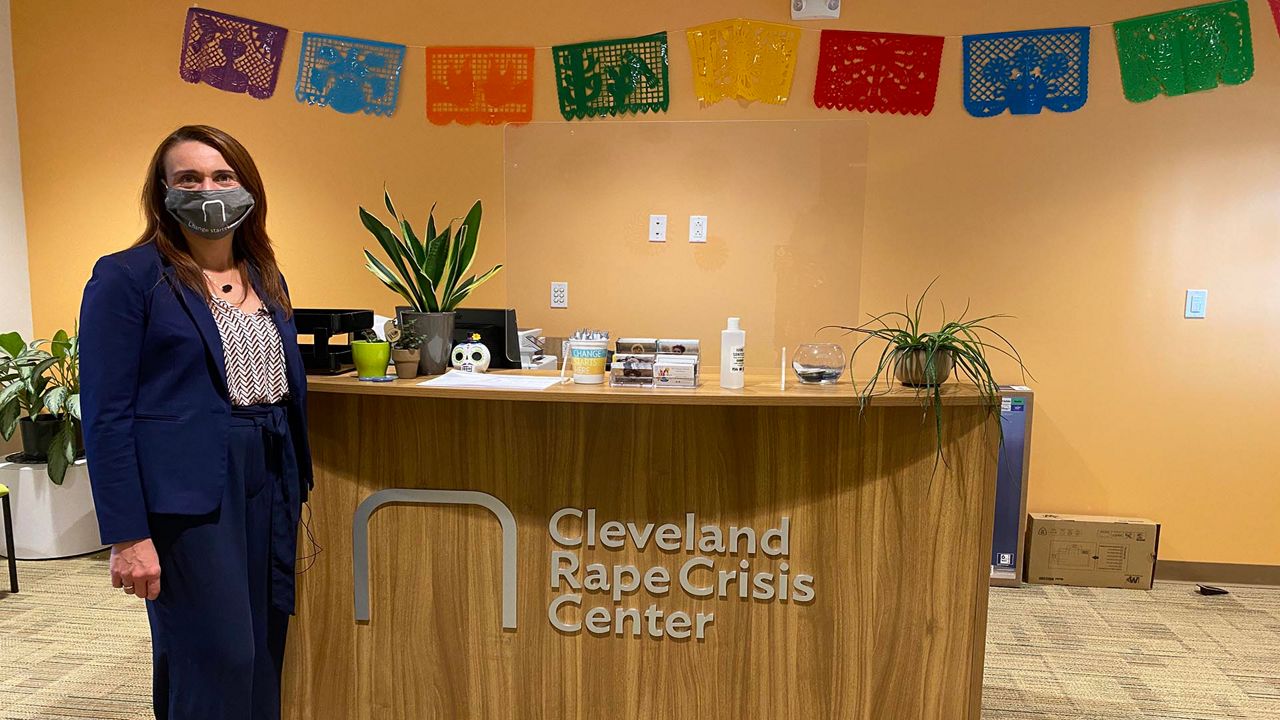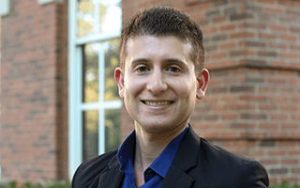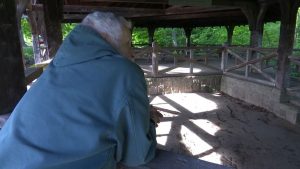CLEVELAND — National Hispanic Heritage month is celebrated from Sept. 15 through Oct. 15, and this month, the Cleveland Rape Crisis Center officially opened a new office space to be more accessible to Hispanic survivors.
Chief Program Officer Kirsti Mouncey says her mind is filled with emotion when she walks into the new Clark-Fulton neighborhood office.
She often reflects on the infamous Cleveland kidnapping case that happened just around the corner, when three women were abused and held captive for about a decade.
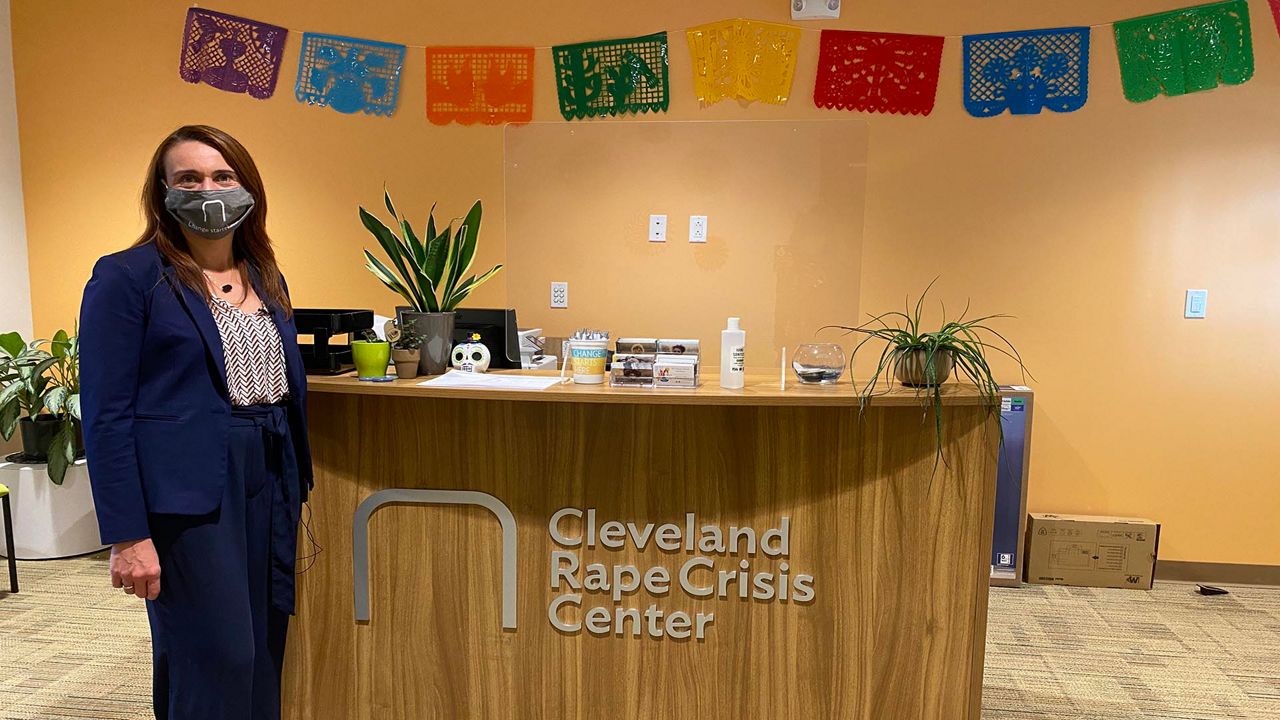
“This building really represents hope for the community. We know that heinous crime occurred just down the street over here on Seymour Avenue and that we know that violence against women is real. And so being in this building and being part of a community effort that breathes hope and breathes optimism and change into a community that has been affected by a crime so hard is really amazing,” said Mouncey.
Mouncey has worked at the Cleveland Rape Crisis Center for 15 years. The decor in the new space is meant to be welcoming and culturally sensitive.
“We have a group that is our Holgar Consuelo Team—that’s our bilingual team on staff, and they produced many of this wonderful artwork. So, we’re really proud to display it,” she said.
The Clark-Fulton neighborhood is considered to have the highest concentration of Hispanics in Cuyahoga County.
The Bilingual Trauma Therapist’s office is right off the waiting room.
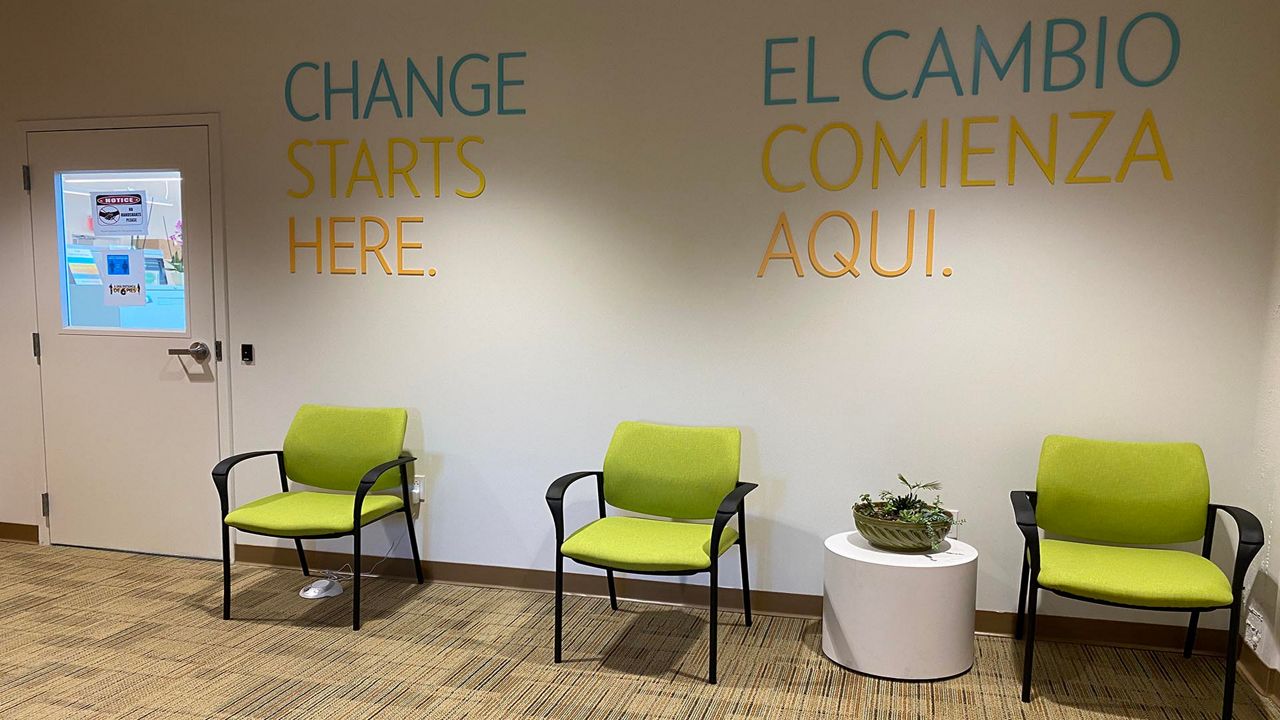
“What we hear from our clients consistently is that they want to connect with providers that are also familiar with their culture that speak their language and can connect with them through their heritage and their ethnicity and their race. So, it’s really important for us to offer that to survivors,” said Mouncey.
Case management and victim advocacy are also available in Spanish.
The space allows room for both individual and group therapy.
COVID-19 means most are working from home, but there are cubicles for staff to work and this new office is now home to the Education Outreach and Prevention Team.
“What we know is sometimes people carry this little brochure or one of our cards in their pocket for a really long time, and it may take them months or years to finally give the number a shot and to call us for an appointment or to talk to someone on our hotline.”
Accessibility is everything—the goal is to provide services in the community survivors live and work in.
Mouncey says the first step in the healing journey is courageous and often the biggest hurdle.
“We want to create change. We want to welcome people who have experienced significant trauma, and we want to help them to regain control over their lives. We want them to know that healing is possible,” said Mouncey.
The hope is to get the word out about this new location—to further the mission and message that “Change Starts Here.”

